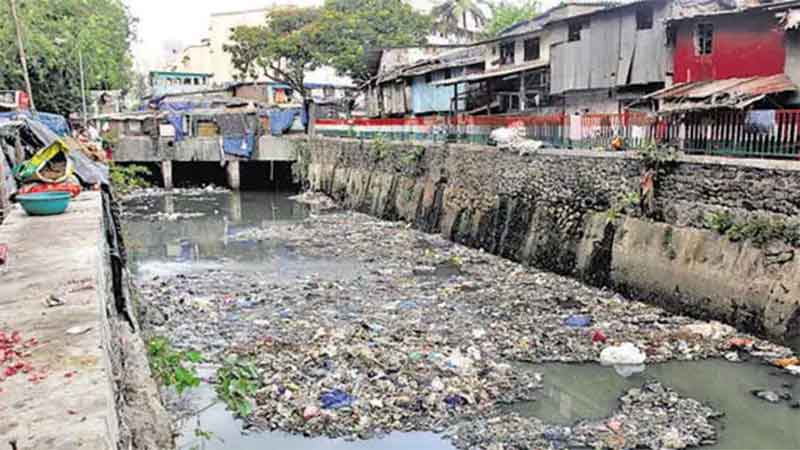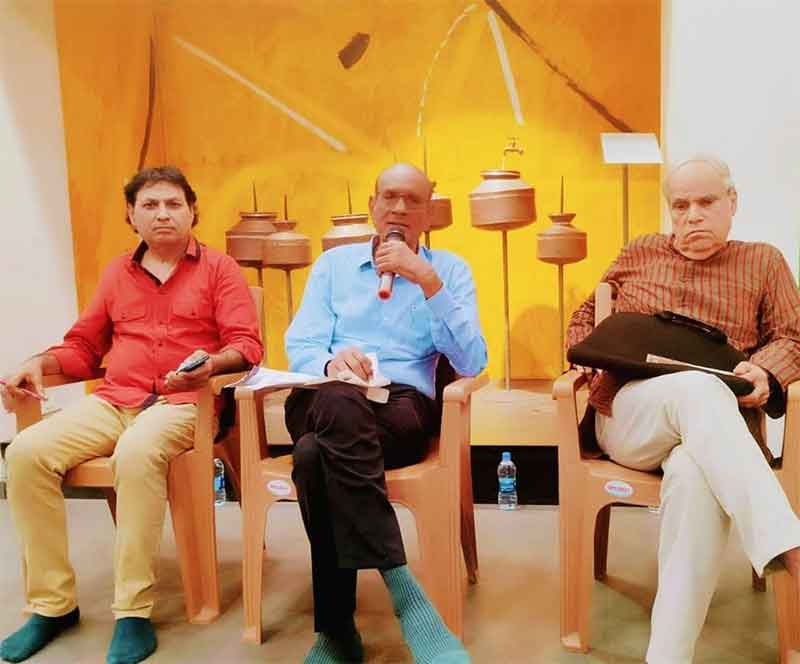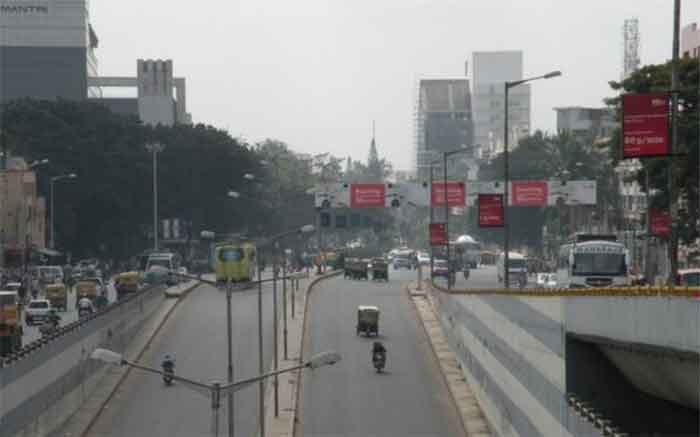
Allowing indiscriminate redevelopment of buildings in Mumbai is like thrusting a knife ino one’s chest. The price is heavy, said Amita Bhide, professor in the Centre of Urban Policy and Governance at TISS, Tata Institute of Social Sciences on March 12. High rise buildings are being built without any consideration of the width of the road, infrastructure for water, sanitation, drainage. This is creating numerous problems. She was participating in a discussion on the municipal budget organised by Mumbai First, a corporate driven organisation for the city, at the Indian Merchants Chamber.
There was a lively discussion in the issue. But there is so much more than what came out and there is so much that is hidden from the public domain.
A photograph in the Free Press Journal today shows a truck dumping debris into a nalla in Andheri which is meant for water draining. No wonder so many nallas stink and are choked, causing flooding during the monsoon.
Another media report this morning points to the death of three construction workers who fell from the 24th floor of a building under construction in Borivali, the contractor was not even aware of the safety gear he should have provided, an inquiry later in the day showed. This shows extreme callousness from the civic authorities and other agencies which are indiscriminately driving construction activity, eating out of the hands of the builder lobby. Thousands of tonnes of construction debris is being generated daily without any planning by the civic body for its disposal.
Clearly, we need a strong movement of citizens as the political leadership and the bureaucracy is failing us miserably.
The upper class is finally waking up to some extent as it is now feeling the pinch as in the case of the racecourse land and the project to destroy the Pherozeshah Mehta garden on Malabar Hill in the name of redevelopment of the water reservoirs.
Mr Sanjay Ubale, a former officer on special duty in charge of big projects of Maharashtra government, posed some serious questions – Is the municipal corporation in Mumbai being run as a department of the state government and is not MMRDA Mumbai metropolitan region development authority not overspending on infrastructure without consideration for financial prudence. He also said some VIP areas were being allotted higher budget.
The speakers perhaps could have cited alarming developments in Bangalore, we need to quickly need to learn hard lessons from there.
The elite in Bangalore is rattled too by the serious water shortage, some people are already being evacuated from there.
Mohandas Pai, businessman, formerly of Infosys, said in an interview that our goverance was imperial, there was no respect for people, no consultation with activists. Bangalore’s water supply was all right so long as the lakes were there, with the lakes being built over by real estate, the water from the dams is not enough, Bangalore is on a plateau, a higher level than the dam which means enormous pumping is needed. And the dam is now drying up.
There is no seepage of water into the soil as soil is being built over, earlier the porous soil would absorb water, help prevent flooding.
Fortunately, Bangalore has some good academic activists like S Vishwanath. He is a visiting faculty with the School of Development at Azim Premji University. He teaches courses on water conservation, sustainable groundwater management, water reuse and recycling. He leads a campaign to dig wells using the traditional skills of the indigenous Vaddar community which is yielding good results. Mumbai needs such activism at the academic level apart from other levels.
With Bangalore facing multiple problems of congestion and water scarcity, it is laudable that Santwana Bhattacharya is organising a conference there on March 23 bringing in activists from different centres.
Among other participants in the Mumbai First conference were Milind Mhaske, CEO of Praja Foundation and Prashant Pisolkar, a former chief auditor of the Mumbai municipal corporation.
It was also pointed out that Mumbai is now being run by bureaucats without any political control, consultation as no elections have been held for the last two years. A serious scenario.
It is also felt that once the new elected body comes into existence, citizens must insist that ward level committee meetings are held with citizens as provided in the Constitutional amendment which is being flouted with the administration.
Vidyadhar Date is a senior journalist and author of a book on public transport and climate change















































